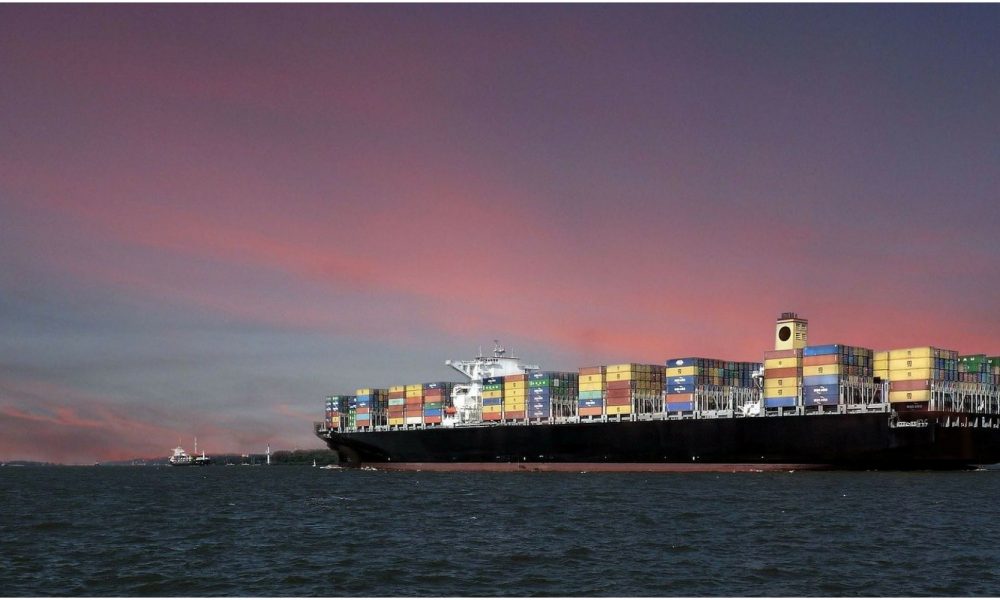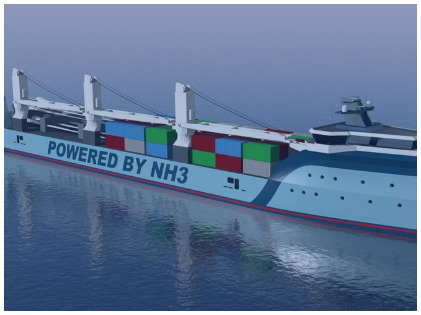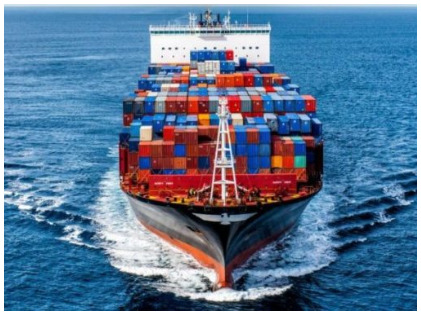
Ammonia May Just Be The Answer To Carbon-Free Cargo Shipping!

Technology is taking us places. In light of the pollutants and terrible emissions that many of our current systems and processes emit, scientists and engineers are working tirelessly on creative solutions and alternatives to help keep our planet cleaner and healthier for all living things.
In the transport industry, ships are still relied on for the transport of phenomenal amounts of goods, and the diesel that fuels them is a massive pollutant. Statistically speaking, it has been found that shipping is responsible for 2% of global carbon emissions, which is likened to the entire German economy. An interesting alternative is now being explored on curbing the carbon emissions in transport by sea!
Fertilizer Is For More Than Farms
 Ammonia is a chemical that happens to be a key constituent of fertilizers. It seems that burning ammonia in the engines of ships may actually fuel them in much the same way as diesel but in a far more ecologically friendly manner. By substituting the polluting diesel, transporting goods by sea will be far less damaging to the earth. Techs of the industry are hopeful that this ammonia substitute can go a long way in tackling climate change since it actually burns without carbon dioxide emissions!
Ammonia is a chemical that happens to be a key constituent of fertilizers. It seems that burning ammonia in the engines of ships may actually fuel them in much the same way as diesel but in a far more ecologically friendly manner. By substituting the polluting diesel, transporting goods by sea will be far less damaging to the earth. Techs of the industry are hopeful that this ammonia substitute can go a long way in tackling climate change since it actually burns without carbon dioxide emissions!
Ammonia and Carbon Dioxide
Some more work has to be done on the idea since the production of ammonia itself does produce considerable carbon dioxide, though we are assured that technology has a means of taking care of this issue. The ammonia manufacturing industry happens to be a very major contributor to carbon dioxide emissions, with ammonia production accounting for, at a minimum, 1.8% of global emissions. This places ammonia production at the top spot out of the entire chemical industry. New technology could apparently create ‘zero-carbon ammonia’. This is achieved in one of two ways. Either carbon dioxide emissions are trapped during the production and then buried in underground rocks, or renewable energy is used to manufacture ammonia, which does produce any carbon dioxide emissions.
What’s The Hub About Ammonia?
 Ammonia is a two-sided coin. In one breath, it is an invaluable chemical that serves innumerable purposes, and in another breath, it is a menace when in the wrong circumstances. It is an essential chemical for the manufacture of explosives, chemicals, textiles, refrigerants, explosives, and fertilizers, and is shipped in bulk for these purposes. However, when spread across fields in a reckless manner, ammonia leads to water and air pollution and may react with other chemicals to form greenhouse gases. While the use of ammonia in agriculture has to be curbed, the good part is that because of its extensive use in farming across the globe, there already exists an infrastructure for the chilling and transport of the chemical if it is to be used as an alternative for shipping fuel. An example of this is a 2000-mile ammonia pipeline that exists in America!
Ammonia is a two-sided coin. In one breath, it is an invaluable chemical that serves innumerable purposes, and in another breath, it is a menace when in the wrong circumstances. It is an essential chemical for the manufacture of explosives, chemicals, textiles, refrigerants, explosives, and fertilizers, and is shipped in bulk for these purposes. However, when spread across fields in a reckless manner, ammonia leads to water and air pollution and may react with other chemicals to form greenhouse gases. While the use of ammonia in agriculture has to be curbed, the good part is that because of its extensive use in farming across the globe, there already exists an infrastructure for the chilling and transport of the chemical if it is to be used as an alternative for shipping fuel. An example of this is a 2000-mile ammonia pipeline that exists in America!
How Soon Can Change Happen?
A two-stroke engine that is powered by ammonia is being developed, as we speak, by Man Energy Solutions. The company is hopeful that the engine will be ready by the year 2024. The spokesperson for the company has expressed that there is a lot of interest in using ammonia as fuel and that the first ships to be fuelled by ammonia will likely be those tankers currently already transporting the chemical for fertilizer. The price of ammonia is expected to match that of liquefied natural gas, liquefied petroleum gas, and methanol. One important point of concern is that greener fuels are not as efficient as diesel and that vessels powered by green fuels will require more space to store more fuel for the same distance as a diesel-powered vessel. This is the reason that hydrogen is not being considered to power sea-vessels.
Some Final Thoughts
 Let us not forget that the burning of ammonia may be carbon-free but it does produce nitrogen oxides, which are another form of greenhouse gas that technology will need to develop and modify to reduce. In support of this research into creating a greener sea transport system, a group of major shipping owners has suggested that a $2 levy per tonne of ship fuel be charged. Still, others are working to reduce the amount of shipping globally and even impose slower speeds in order to conserve fuel and reduce emissions. Decarbonizing ammonia while expanding the ammonia industry is a lot to ask for simultaneously, but some people believe it can be done.
Let us not forget that the burning of ammonia may be carbon-free but it does produce nitrogen oxides, which are another form of greenhouse gas that technology will need to develop and modify to reduce. In support of this research into creating a greener sea transport system, a group of major shipping owners has suggested that a $2 levy per tonne of ship fuel be charged. Still, others are working to reduce the amount of shipping globally and even impose slower speeds in order to conserve fuel and reduce emissions. Decarbonizing ammonia while expanding the ammonia industry is a lot to ask for simultaneously, but some people believe it can be done.
More in Business & Investments
-
`
WWE SmackDown to Make a Comeback on USA Network in 2024
In a surprising twist, WWE’s Friday night staple, “SmackDown,” is bidding farewell to Fox and heading back to its old stomping...
November 24, 2023 -
`
Why Women Face Higher Out-of-Pocket Health Expenses
In healthcare, disparities persist, and a recent report from Deloitte underscores a significant financial gap between working women and men in...
November 18, 2023 -
`
Elon Musk vs Bill Gates: The Clash of Titans
In the realm of the world’s wealthiest individuals, a simmering rivalry has been captivating public attention. It’s not a clash of...
November 7, 2023 -
`
The Power Of Disconnecting
In our digitally driven age, where smartphones, tablets, and laptops have become extensions of ourselves, disconnecting might seem daunting. However, the...
October 31, 2023 -
`
JCPenney’s Bankruptcy: The End of an Era
JCPenney filed for bankruptcy in a move echoing the struggles of many retailers in the wake of the COVID-19 pandemic. This...
October 26, 2023 -
`
Reasons Why You Need a Financial Plan
Financial planning is not just for the wealthy or those nearing retirement. It’s a crucial tool for anyone seeking financial security...
October 19, 2023 -
`
How Brad Pitt Spends His Millions All Over the World
Brad Pitt, the charismatic Hollywood superstar, has left an indelible mark on the silver screen and made an impact in the...
October 10, 2023 -
`
Gen Z’s Posh Palate: The Unexpected Rise of Caviar Culture
Amid the backdrop of a digital era buzzing with viral dances, e-sports, and niche memes, there emerges a peculiar plot twist:...
October 7, 2023 -
`
Transform Your Retail Business With Social Media Mastery
If you’re a retail marketer posting your social media messages haphazardly, you might be missing out on prime opportunities to turn...
September 26, 2023















You must be logged in to post a comment Login